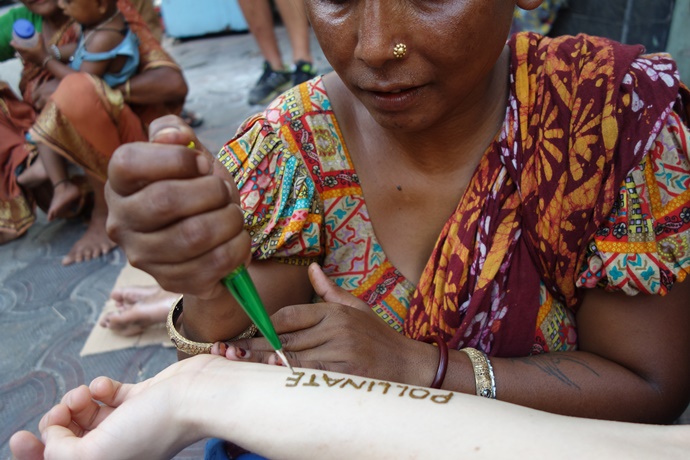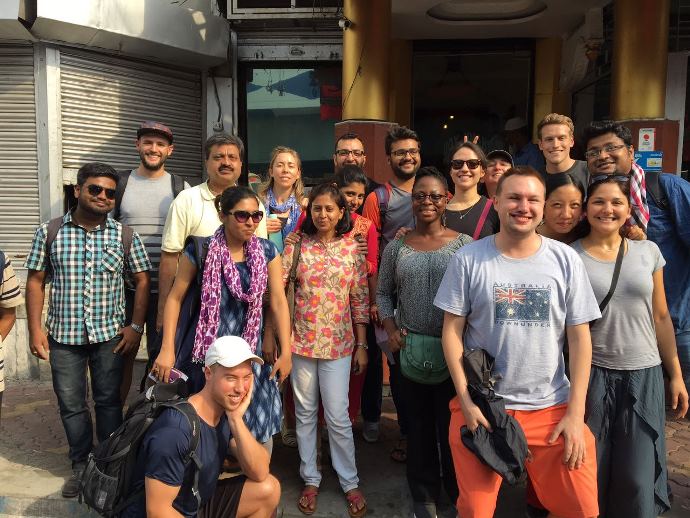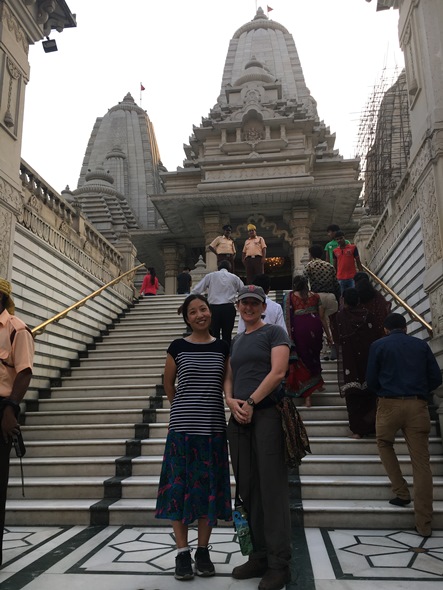Pollinate India: Arrival in Kolkata
The excitement hit me on the airport travelator – I’m going to India!
There’s nothing quite like walking along a moving walkway to a soft mechanical hum in air-conditioned, sterile surrounds. Of course, the airport environment is the complete opposite of my first impressions of India – an assault of heat and car horns.
We are in Kolkata, with its samosa-laden streets and majestic colonial past. Colour is everywhere; in the pink saris worn by the women gliding down the street, the crumbling blue wall paint peeling in the sun, and the bright orange flower wreaths adorning temple idols. We’ve sipped chai out of recyclable clay cups on the street, attempted to haggle for spices at the New Market, and I even had a henna tattoo drawn on my arm as part of our ‘Amazing Race’ challenge – with the word ‘ENERGY’, of course!

This is what we are here for – energy (not henna). As a participant in the Pollinate Energy Professional Fellowship program, I have journeyed from Melbourne to Kolkata with 10 other young professionals from around the world, including two fellow colleagues from AECOM. Together, we’re on a two-week intensive program to observe and assist slum communities facing the challenges of energy poverty.
Pollinate Energy is a social business that brings life-changing products to people living in India’s urban slums. Founded just four years ago, its work provides sustainable energy products to communities while supporting local staff – ‘pollinators’ – to build their own businesses. The flagship product being sold is a solar lamp, which provides families with clean, safer and brighter light, thereby improving productivity and quality of life.

We’ve already had our own minor challenges in the Pollinate Energy office, where the international fellows are bunking. A blackout, plumbing issues and, perhaps not unexpectedly, the rat running around the kitchen, have all kept us on our toes so far!
Our home, though, is a mansion compared to conditions in the urban slums, where access to electricity and clean water is severely limited or, in many cases, non-existent.
We are going to be the last fellowship group in this city after two years in operation. Today we finalised our work assignments and teams, and tomorrow, we head out into the communities to see local life and the business in action.

It’s all ahead of us; join us on the journey!






